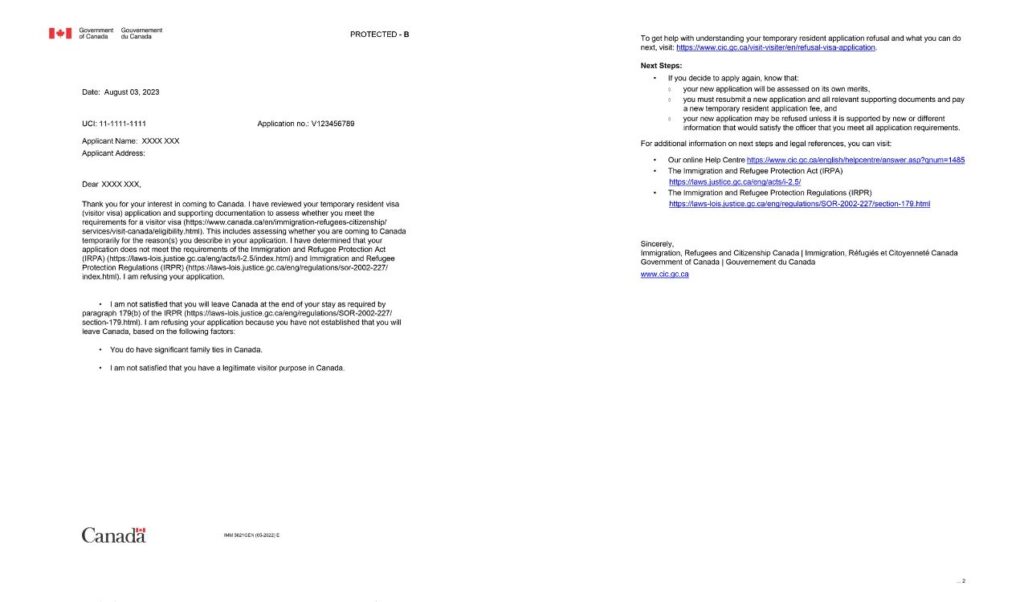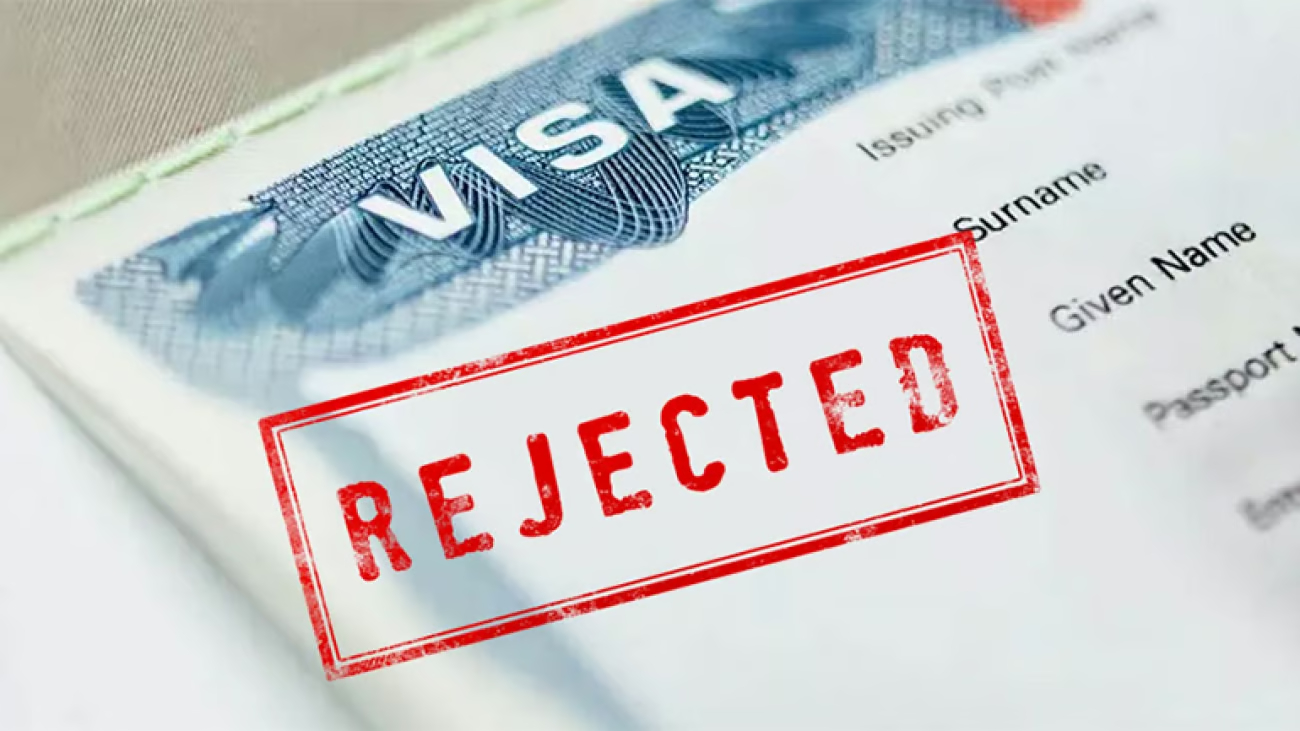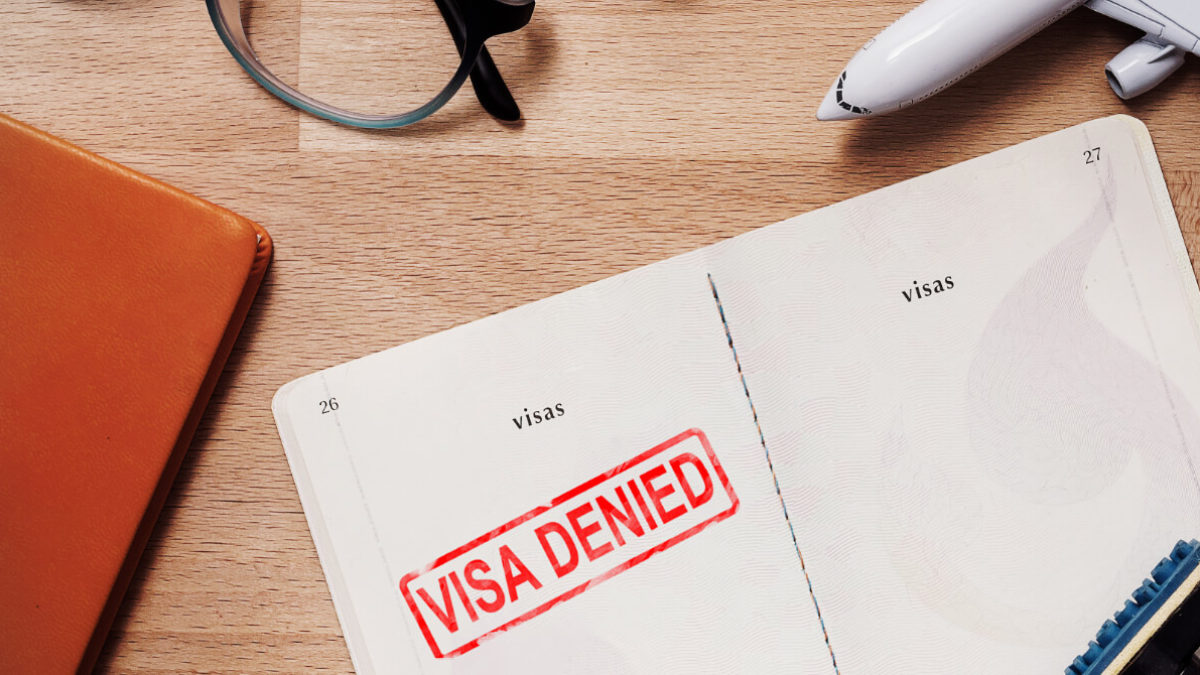Canada visa refusal reasons, experiencing disappointment due to the rejection of your Canadian visa application can be disheartening. However, it is crucial to understand the reasons behind the refusal and explore alternative courses of action. You want to know the Canada visa refusal reasons and your next steps.
Most common Canada visa refusal reasons
- Lack of Ties to Home Country: If you cannot show close ties to your home country, you may be denied entry into Canada for an extended period, one of the most frequent grounds for rejection.
- Insufficient Funds: Your application may be refused if you cannot prove that you will have enough cash to pay for your stay’s expenses.
- Incomplete Documentation: Refusals may result from any missing or insufficient documentation. Make sure to provide the necessary documentation accurately.
- Criminal History: A criminal history, particularly of severe offences, may lead to visa denial.
- Travel History: It may be cause for concern if there is a lack of travel history or if other nations have already rejected you.
- Misrepresentation: Giving fraudulent information or documentation may result in an instant refusal and possible ban from future applications.
- Unclear Travel Intentions: Your application may be refused if your paperwork does not support the purpose of your visit or if your travel intention is not made apparent.
Canada Visa Refusal Letter Sample

The following steps after Canada Visa Refusal
Here are important steps you can take if your Canada visa application is refused:
1- Review the Canada visa refusal letter and Reflect
Before submitting a new application, carefully examine your previous submission, the grounds for rejection, and the changes you’ve made. Utilize this information to enhance your future applications and address any issues that may have led to the initial rejection.
The precise grounds for the visa denial will be detailed in the Canada Visa Refusal reasons letter you get from the Canadian authorities. It is imperative to meticulously read and comprehend these reasons, as they will reveal which aspects of your application were deemed insufficient.
For example, if your letter indicates misrepresentation, it is advisable to wait until five years have elapsed since the rejection. In the case of a mention of a criminal history or inadmissibility, you may need to take measures to address and overcome the inadmissibility.
2-Understand the Canada visa refusal reasons
Identify the specific reasons for the refusal. For Example, if :
Your letter refers to misrepresentation

If misrepresentation is the cause for your rejection, the phrase “inadmissible for misrepresentation” will be present in the final sentence of your decision letter. This signifies that the officer determined that you submitted falsified or altered documents, provided deceptive information, or omitted crucial material during an interview or on your application. It holds true even if someone else supplied counterfeit documents or provided false information. Whether your agent completes your application, you remain responsible for all the information contained in it.
It will require a minimum of five years for you to become eligible to enter Canada. It is advisable to postpone reapplication until five years have elapsed from the date of the letter. If you submit your application before this period concludes, it will be rejected, and you will not be permitted to enter.
Your letter refers to a history of criminal activity or criminal inadmissibility
You may be denied entry into Canada if you have committed specific acts, offenses, or convictions either in your home country or in Canada. This designation, according to Canadian immigration law, renders you “inadmissible,” encompassing both serious and minor offenses.
If the IRCC determines that you are criminally inadmissible, you have the opportunity to appeal within a designated timeframe. For certain offenses, you might be deemed rehabilitated after a sufficient amount of time has passed, but it is essential to apply for criminal rehabilitation.
3. Address Canada visitor visa refusal reasons and Reapply
If your application is declined, the choice to reapply with the same information remains. If the IRCC official examining your case has reasons to believe that you are inadmissible to Canada or that you might exceed the allowed duration of stay, your application may face rejection.
Submitting a new application will yield the same result, leading to additional costs for you and prolonged processing times for other applicants. If your circumstances undergo a change, you are encouraged to apply with the updated information.
You may need to apply again and take corrective action based on the reasons for the rejection. You can apply for a visitor visa to Canada if you have addressed the Canada Visa Refusal reasons that caused the first refusal. Please ensure all relevant paperwork is included, and if you need an explanation, ensure it is well-prepared.
Feel free to rectify any errors and proceed with a new application if the rejection was due to incomplete or missing paperwork. Ensure that all necessary documents are submitted, and address the issues outlined in the rejection letter for a more successful application.
If your situation has not changed since you applied
Before considering a reapplication, it would be advantageous to address the reasons behind the initial denial and demonstrate either a change in your circumstances or the availability of significant new information. There is no guarantee of a different outcome upon reapplication.
For instance, if your rejection was based on insufficient funds for your stay in Canada, reapplying without addressing this issue may lead to another refusal. Providing additional evidence to alleviate concerns, such as demonstrating strong ties to your home country or clarifying the purpose of your trip, can strengthen your case.
If your situation has changed
When reapplying, inform IRCC of any changes in your circumstances, ensuring that these changes are accurately reflected in the documentation you submit. Provide specific documentation demonstrating, for instance, stable employment with a reliable income or additional connections, such as family or financial holdings.
The IRCC scrutinizes your application, seeking a correlation between the information supplied in your application form and the details presented in the supporting documentation.
Additional Steps to Consider
- Proof of Strong Ties to Your Home Country: Highlight your close ties to your home country while reapplying. Provide more proof of your plan to return after your vacation, such as employment letters, property ownership certificates, or family responsibilities.
- Financial Documentation: Provide thorough bank statements, job letters, and other proof of your ability to pay bills if money were an issue.
- Be Transparent: When reapplying, be open and honest about the reason for your prior rejection. Explain how you resolved the problems that caused the denial and attach any supporting evidence you feel is needed.
- Seek expert advice: You might want to speak with an immigration specialist if you’re not sure how to strengthen your application or deal with the problems that caused the rejection.
4. Appeal Canada Visa Refusal (Decision)

You could challenge the IRCC’s decision under specific circumstances. Review the Canada Visa Refusal Reasons and immigration regulations to determine if you meet the criteria for an appeal, as not all Canada visa refusals are eligible for appeal. If you qualify, follow the appeals procedure recommended by the immigration authorities.
5. Consider Alternative Plan
If your current visa category proves challenging, explore alternative options that may be more suitable. Canada offers a variety of visas for different purposes, such as work permits, study permits, and permanent residence.
6. Seek professional advice
If you are uncertain about the reasons for rejection or how to proceed, seeking the assistance of an immigration lawyer or consultant specializing in Canadian immigration can be beneficial. They can offer tailored guidance based on your specific circumstances. An immigration specialist can assist you in crafting a robust visa application, providing advice on how to make your case more compelling.
Important consideration
- Nobody can guarantee a visa: Don’t believe anyone who claims to be able to expedite your application or acquire a visa for Canada, such as an immigration specialist or agent. The likelihood that your application will be accepted will not be increased by working with an immigration agent or other professional. Before reapplying, carefully evaluate your options, as application fees are non-refundable after processing your application. Even if someone else fills out your application, you are still responsible for all its data. For advice on locating a certified representative and guarding against fraud, see How to Select an Immigration Representative.
- Be patient: Every situation is unique, and the immigration process can be intricate. The reapplication process should be undertaken with diligence, patience, and a proactive attitude.
- Personalize your application: Each visa application is unique, and the best course of action may vary based on the specifics of your case. To enhance your prospects of approval in future applications, it is crucial to carefully examine the Canada Visa Refusal reasons letter and, if needed, seek expert guidance.
Conclusion
In the event that your second application is declined, it is advisable to conduct a more comprehensive analysis of the issues and submit a more robust application. Contemplate seeking expert assistance to ensure that your application is as strong as possible.
How Can We help with your TRV Refusal?
If your application for a visitor visa to Canada has been rejected, don’t lose hope! We have assisted numerous clients, often overcoming multiple visa refusals. Visitor Visa Refusal is one of our Registered Canadian Immigration Consultant’s (RCIC) areas of expertise, and he has successfully helped many clients obtain a visa even after facing multiple refusals.
Visitor visa applications may be declined for various reasons, with one of the primary concerns being the suspicion that the applicant intends to stay in Canada beyond their authorized visit. Canserves Visa specializes in preparing strong and well-documented applications that accurately convey the purpose of the visit to Canada, increasing the likelihood of TRV issuance. Our RCIC is equipped to guide clients in understanding the Canada Visa Refusal Reasons and can provide assistance in areas where applicants may need support to overcome visa refusals.
